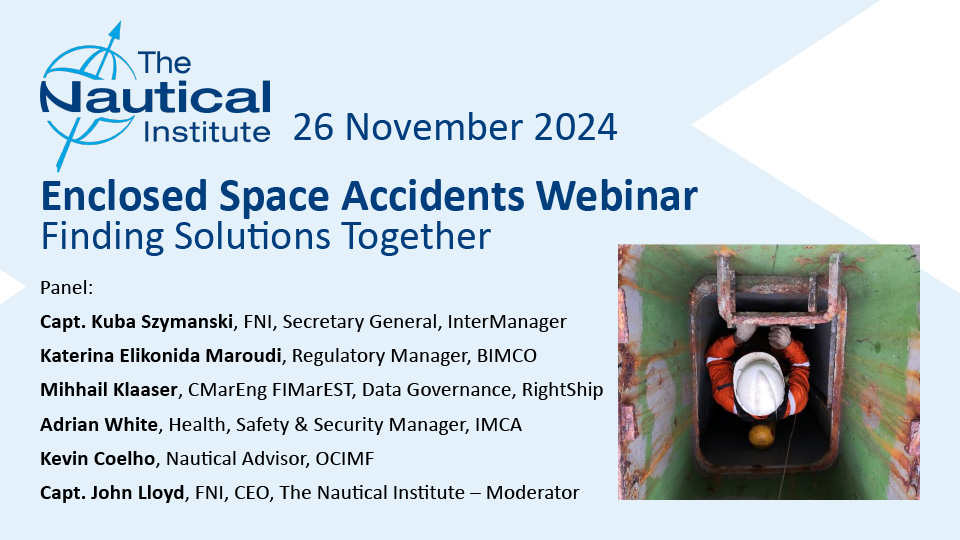BIMCO position statement 11: Safe and Efficient Navigation
Overview
BIMCO's position has been approved by the BIMCO Board of Directors.
Background
To ensure safety of navigation, coastal states are obliged to provide measures to ships in accordance with the relevant conventions in particular the United Nations Convention on the Law of the Sea (UNCLOS), which came into force in 1994, and the Convention for the Safety of Life at Sea (SOLAS), which entered into force in 1980. Such measures should include adequate hydrographic services, navigational aids, meteorological services and navigational warnings.
Safe and efficient shipping depends on the ability to plan and execute a safe voyage and, in this respect, innocent passage and freedom of navigation are crucial. Furthermore, efficient shipping depends on the possibility to choose the most energy efficient routes to reduce emissions from ships.
The International Maritime Organization (IMO) has developed a plan to implement enhanced navigation (e-Navigation) with the aim to improve safety of navigation and to reduce errors by establishing modern and proven tools onboard ships and ashore that are optimised for good decision making. Furthermore, efficient shipping depends on the possibility to choose the most energy efficient routes to reduce emissions from ships while appropriately managing environmental aspects such as underwater radiated noise and risk of whale strikes.
Government use of automatic identification systems (AIS) to track ships for compliance purposes is becoming the norm.
BIMCO’s position statement
-
- BIMCO acknowledges the need to allocate areas for various activities at sea. Such allocations are supported providing the spatial planning is based on a risk assessment of ships’ safety and takes into account the importance of efficient passage. Efficient passage means the shortest, safe route, thereby minimising bunker consumption and air emissions.
- The IMO should continue to coordinate the development and implementation of e-Navigation solutions. The focus should be on the human element for example the user interface and the use of value-adding data communication and services. When introducing new technology, especially to bridge watchkeepers, the aspect of information overload should be kept in mind. At times, new technology may bring unintended negative consequences.
- Government use of AIS signals to track ships should not impede on the master’s right to switch off AIS in accordance with IMO Resolution A.1106(29) ie if the master believes that the continual operation of AIS might compromise the safety or security of the ship.
- Incidents of interrupted AIS transmissions should not give charterers the automatic right to terminate a time charter party on the mere assumption that any AIS “switch off” is linked to sanctions busting.
- BIMCO strongly recommends the use of BIMCO’s AIS Switch Off Clause for Time and Voyage Charter Parties 2021. The clause is aimed at ensuring that legitimate switch off of the AIS does not give rise to termination rights and ensures a balance of rights and responsibilities between owners and charterers in preventing AIS manipulation to evade sanctions.
- Maritime safety information and search and rescue information should be available to ships free of charge.
- When introducing new technology, especially to bridge watchkeepers, the aspect of information overload should be kept in mind. At times, new technology may bring unintended negative consequences.
Feedback or a question about this information?
VPS Bunker Alerts
Veritas Petroleum Services (VPS) publish regular Bunker Alerts based entirely on fuel samples and have kindly permitted BIMCO’s Members to access this information.
The Bunker Alerts are not intended to be an evaluation of overall bunker quality in the port or area concerned, but usually highlight a specific parameter within the fuel which has raised a quality issue.
Want to stay up-to-date?
Register for updates about
{{Title}}
Receive emails when this topic is updated – you can choose how often.
Register NowELSEWHERE ON BIMCO
Chartering help & advice
This section contains a comprehensive source of information and guidance on chartering related matters. You will find invaluable information on many aspects of chartering distilled from our many years’ experience on advising members.
Learn about your cargo
For general guidance and information on cargo-related queries.
BIMCO Publications
Want to buy or download a BIMCO publication? Use the link to get access to the ballast water management guide, the ship master’s security manual and many other publications.





